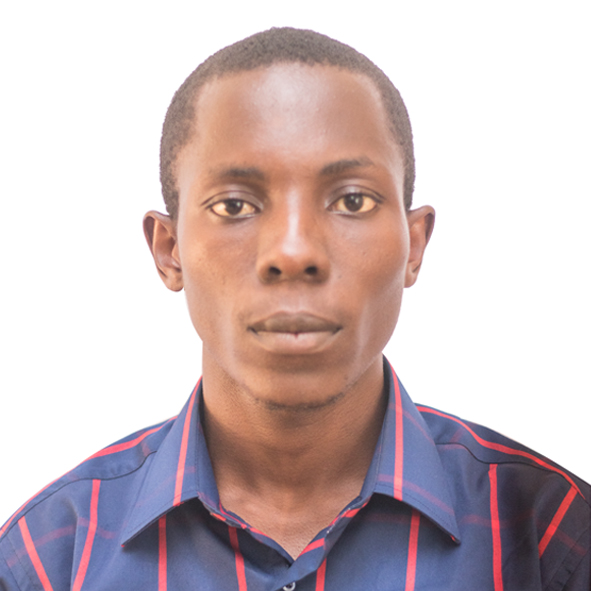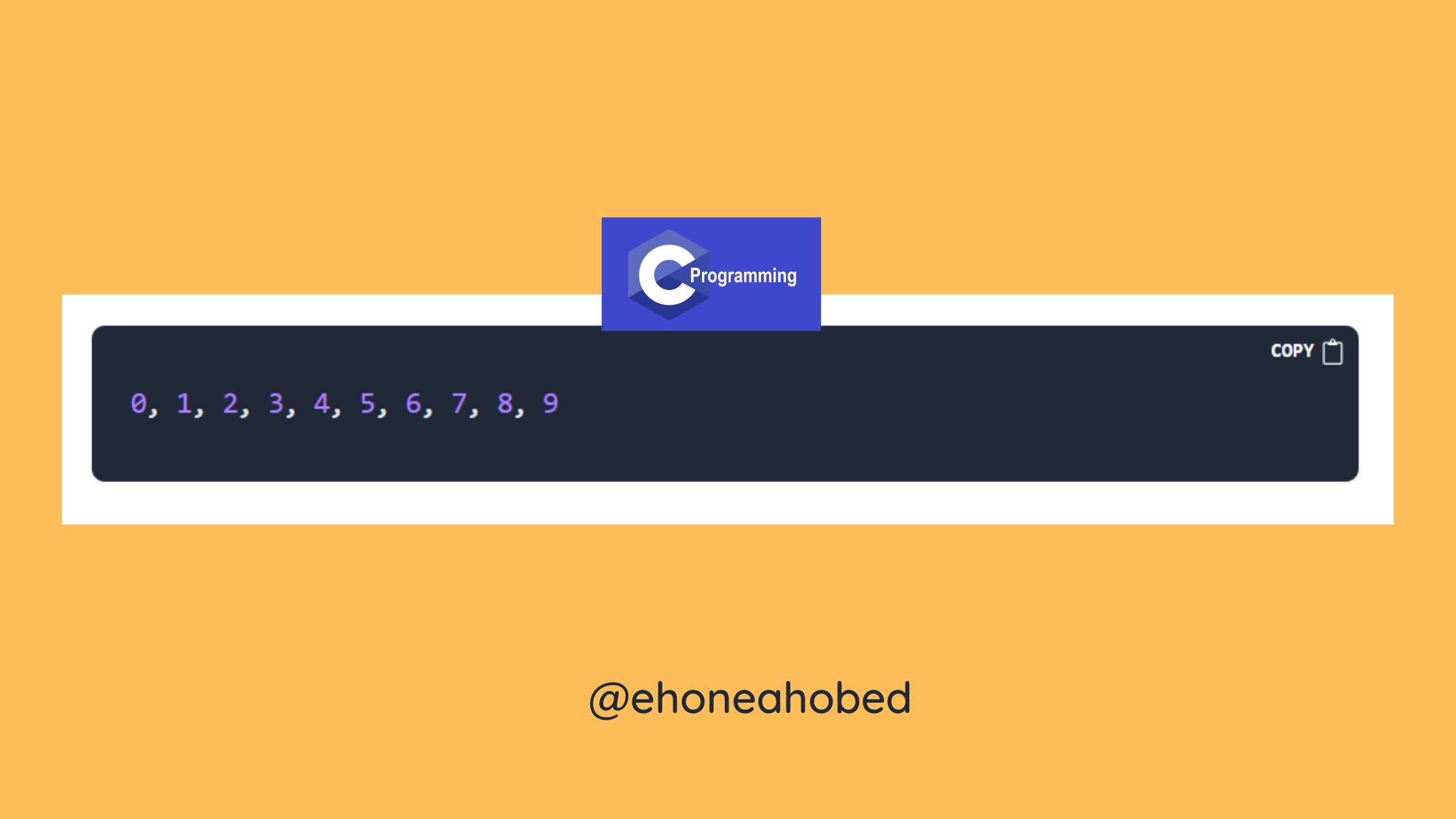Write a program that prints all possible combinations of single-digit numbers
 Dr. Ehoneah Obed
Dr. Ehoneah Obed
0, 1, 2, 3, 4, 5, 6, 7, 8, 9
The question is about writing a C program that produces the outcome above.
There are several ways we can have a program to print all the possible combinations of single-digit numbers. In this tutorial, we will look at how to use:
putcharprintf
Also, for each of them, we can look at multiple ways of achieving the expected outcome. In this tutorial we will take a look at how to use two different types of loops to achieve the result;
For loop
While loop
Using putchar to print all combinations of single-digit numbers
First we will look at how to do that with a for loop and afterwards implement the same code using a while loop.
By default, the putchar function is used for displaying single characters to the screen, but we need to make it print integers this time round.
What can help us here is the fact that the putchar function recognizes ASCII codes and is able to print the corresponding integer value of any ASCII code. This means we would also need to know the ASCII codes for the digits (0, 1, 2...9).
| ASCII Code | Interger Value |
| 048 | 0 |
| 049 | 1 |
| 050 | 2 |
| 051 | 3 |
| 052 | 4 |
| 053 | 5 |
| 054 | 6 |
| 055 | 7 |
| 056 | 8 |
| 057 | 9 |
With a for loop
#include <stdio.h>
/**
* main - main block
* Description: Print all possible combinations of single-digit numbers.
* Numbers must be separated by commas and a space.
* You can only use `putchar` to print to the console.
* You can only use `putchar` up to four times.
* You are not allowed to use any variable of type `char`.
* Return: 0
*/
int main(void)
{
int x;
for (x = 48; x < 58; x++)
{
putchar(x);
if (x < 57)
{
putchar(44);
putchar(32);
}
}
putchar('\n');
return (0);
}
If you don't know the ASCII codes and would still want to use the putchar function, there is a way around it.
You can forcefully convert an integer to a character inside the putchar function. This can be done by adding '0' to the integer.
The above code can therefore be re-written as:
#include <stdio.h>
int main(void)
{
int x;
for (x = 0; x < 10; x++)
{
putchar(x + '0');
if (x < 9)
{
putchar(',');
putchar(' ');
}
}
putchar('\n');
return (0);
}
With a while loop
Let's use the while loop to answer the tasks in the same way we did for the for loop.
- Using the ASCII codes
#include <stdio.h>
int main(void)
{
int x = 48;
while (x < 58)
{
putchar(x);
if (x < 57)
{
putchar(44);
putchar(32);
}
x++;
}
putchar('\n');
return (0);
}
- Converting integers to characters with the
putchar
#include <stdio.h>
int main(void)
{
int x = 0;
while (x < 10)
{
putchar(x + '0');
if (x < 9)
{
putchar(',');
putchar(' ');
}
x++;
}
putchar('\n');
return (0);
}
Using printf to print all combinations of single-digit numbers
- With a while loop
#include <stdio.h>
int main(void)
{
int x = 0;
while (x < 10)
{
printf("%d", x);
if (x < 9)
{
printf(", ");
}
x++;
}
printf("\n");
return (0);
}
- With a
for loop
#include <stdio.h>
int main(void)
{
int x;
for (x = 0; x < 10; x++)
{
printf("%d", x);
if (x < 9)
{
printf(", ");
}
}
printf("\n");
return (0);
}
The outcome for all the above codes are:
0, 1, 2, 3, 4, 5, 6, 7, 8, 9
Subscribe to my newsletter
Read articles from Dr. Ehoneah Obed directly inside your inbox. Subscribe to the newsletter, and don't miss out.
Written by

Dr. Ehoneah Obed
Dr. Ehoneah Obed
Heya! 👋 I love helping people, and one of the best ways I do this is by sharing my knowledge and experiences. My journey reflects the power of growth and transformation, and I’m here to document and share it with you. I started as a pharmacist, practicing at a tertiary hospital in the Northern Region of Ghana. There, I saw firsthand the challenges in healthcare delivery and became fascinated by how technology could offer solutions. This sparked my interest in digital health, a field I believe holds the key to revolutionizing healthcare. Determined to contribute, I taught myself programming, mastering tools like HTML, CSS, JavaScript, React, PHP, and more. But I craved deeper knowledge and practical experience. That’s when I joined the ALX Software Engineering program, which became a turning point. Spending over 70 hours a week learning, coding, and collaborating, I transitioned fully into tech. Today, I am a Software Engineer and Digital Health Solutions Architect, building and contributing to innovative digital health solutions. I combine my healthcare expertise with technical skills to create impactful tools that solve real-world problems in health delivery. Imposter syndrome has been part of my journey, but I’ve learned to embrace it as a sign of growth. Livestreaming my learning process, receiving feedback, and building in public have been crucial in overcoming self-doubt. Each experience has strengthened my belief in showing up, staying consistent, and growing through challenges. Through this platform, I document my lessons, challenges, and successes to inspire and guide others—whether you’re transitioning careers, exploring digital health, or diving into software development. I believe in accountability and the value of shared growth. Your feedback keeps me grounded and motivated to continue this journey. Let’s connect, learn, and grow together! 🚀